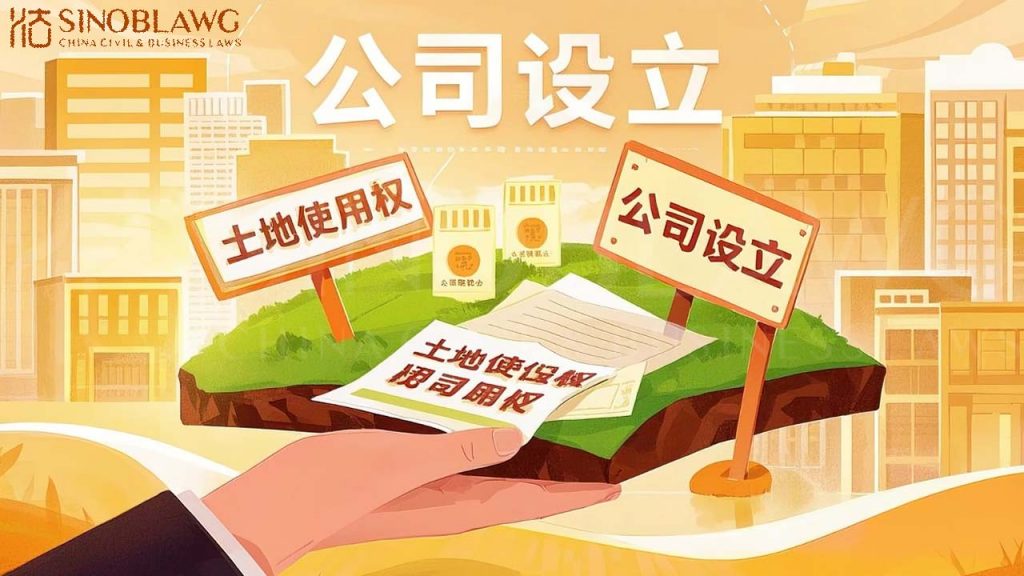I have been waiting for more details regarding the confiscation of Shenzhen Kingglory Plaza to be disclosed or leaked. But the Shenzhen government seems determined not to tell more than what the media has reported.
As a real estate lawyer that has been focusing on Chinese real estate law practice for long, I was indeed shocked to hear the news about confiscation of the Kingglory Plaza in Shenzhen. I was shocked because the property confiscated by local land authority is huge, estimated to be around RMB 6 billion, and more because the legal ground on which the confiscation is based. There is a lot to be talked about the scandal but I will only focus on the legal aspect of the story, namely, whether the confiscation is legal under Chinese laws. The answer of the question can be tremendous and far-reaching, and foreign investors in Chinese real estate market shall pay particular attention to the development of the scandal.
The legal ground given by Shenzhen land department for confiscating the property is that the land underlying the property was illegally transfered between the parties that were supposed to jointly develop the land and build the structures. No specific provisions of laws are cited in the confiscation decision (at least there is no evidences indicating otherwise), and not surprisingly, the land bureau played word games here by refering to “relevant laws and regulations”. Being “relevant xx” in China means often that you cannot clearly tell xx or even there is actually no such xx.
Before we proceed to analyze the confiscation from legal perspective, let us get familiar with what facts were found in the case so far.
FACTS OF THE CASE:
The land concerned in the case was originally used by a local cinema company (“Cinema”). On August 7, 2000, the Cinema entered into a joint development contract with Kingglory Group Company (“KG”) under which Cinema offered the land and KG offered fund to build Kingglory plaza which shall later be split between Cinema and KG with Cinema owning 30% and KG 70%. Immediately thereafter, on August 18, the two parties signed a supplementary agreement to the joint development contract pursuant to which KG agreed to pay RMB 55 million for the exclusive development of the underground space. On March 1, 2001, the two parties applied to local land bureau for approval for the joint development of the land, but in the application, the parties only submitted their initial contract without including supplementary agreement. Later on February 8, 2002, the parties signed another agreement replacing the original 30%/70% ownership splitting by giving Cinema 2530 square meters construction area for cinema use and additional 20% of the GFA above the 8th floor, if any, as well as an indemnity of RMB 161 million for clearing and levelling the land. On December 8, 2002, the two parties concluded the land use right grant contract with Shenzhen local land bureau under which the land was granted to the two parties for commercial development and the parties shall pay RMB 410 million to the local government, and the money of course came from KG.
The investigation into the deal by the land bureau found that the two parties had not performed the initial contract with the 30%/70% splitting but the two supplementary agreements (put together, it was said that under the two agreements, KG had bought the land use right from Cinema with a price of 211 million), and because of this finding, it was considered that the two parties had illegally transacted the transfer of the land use right in the disguise of fake joint development. In other words, the two parties had not really jointly developed the land and what they really did (under the two supplementary agreements) amounted to assignment/transfer of the land use right from Cinema to KG. And the assignment/transfer was considered ‘illegal”.
Assuming all the facts discovered by land bureau are true, would that lead to such an severe punishment as confiscation of the whole property? This is where law practitioners, real estate investors and developers are concerned.
The key question is whether the local land bureau has based their decision on solid legal ground. To put it another way, is there any specific law provisions empowering a land department to confiscate property sitting on the land which is “illegally” transacted between the two parties that are supposed to jointly develop the land?
POSSIBLE LEGAL BASIS FOR THE CONFISCATION
We have not seen the contents of the penalty decision and thereofre are not aware of the specific statutory provisions the local land bureau resorted to. My experience and research in the laws and regulations relating to administration of land and real estate development found only two possible similar provisions that may lend the local land bureau the guts to confiscate the whole plaza.
Article 73 of the Law of the People’s Republic of China on the Administration of Land reads:
“Where the land is sold and purchased or otherwise illegally transferred,the land department of the county or higher level governments shall confiscate the illegal gains derived therefrom; in the case that the agricultural land is used for construction purpose without approval and in violation of the general plan for land uses, the newly built structures and other facilities on such illegally transfered lands shall be demolished and removed within certain time limit so as to restore the land, and in the case that it is in compliance with the general plan for land uses, the newly built structures and other facilities on such illegally transferred lands shall be confiscated; on top of the above, a fine may also be imposed; ……”.
Article 66 of the Law of the People’s Republic of China on the Administration of Urban Real Estate provides:
“where the land use right is transferred in violation of the provision in the first paragraph of Article 39 of this Law, the land department of the county or higher level governments shall confiscate the illegal gains derived therefrom and may also impose a fine.”
The first paragraph of Article 39 of the Law of the People’s Republic of China on the Administration of Urban Real Estate provides:
“the following conditions shall be met at the time of transfer of real estate whose land use right is obtained through land granting:
(1) the land grant premium/fee under the land granting contract has been paid up and the land use right certificate is obtained;
(2) land development has been conducted in accordance with land granting contract, and in the case of residential project, at least 25% of the total investment has been completed, and in the case of development of raw land, the land meets the conditions for industrial purpose or other construction purposes.”
Pursuant to this Article 73, it is quite clear that government land department has the power to confiscate structures and facilities built on the land that is obtained through illegal transfer. Now the very question to ask is whether there is illegal land transfer in the deal transacted by and between Cinema and KG.
According to the media report, the local land bureau thought, the two supplementary agreements between Cinema and KG had actually changed their initial joint development contract into one for land use right transfer as per a piece of China Supreme Court judicial interpretation regarding land joint development which provides that a joint land development contract under which the party providing land use right does not bear the business risks but collects fixed amount of interests shall be deemed as a contract for transferring land use right. Therefore, the bureau held it that this “fake joint development but real land transfer” is a way of illegal transfer of land use right in breach of Law on the Administration of Land.
However this plausible inference does not stand to reason.
First of all, it is not clear whether in any of those supplementary agreements it was expressly stipulated that Cinema would not bear any risks for the development or Cinema was guaranteed for its interests. If not, it remains a question whether a land use right transfer deal should be deemed to exist between Cinema and KG. Secondly, that judicial interpretation on joint development does not in any case by itself declare and indicate that such covert way of land use right transfer is illegal under China Law on the Administration of Land. The judicial interpretation simply says that in the case of such a contract, courts should take such a contract as land transfer contract and apply relevant laws and regulations relating to land transfer in trying and deciding on such a case. Whether the land use right transfer under such contracts is legal or not requires further analysis of the facts in the matter in connection with land laws and regulations including the Law of the People’s Republic of China on the Administration of Urban Real Estate.
While I have strong scepticism about the legality and reasonableness of this administrative penalty, because of the ambiguity of the wording “otherwise illegally transfered” which can be broadly interpreted, on the face, the local land bureau could find good comfort for their decision. Actually, when I discussed the story with my friend working at Shanghai land department, he did think that the confiscation penalty was not much flawed at all while making his reservation for lack of sufficient information of story.
CONCLUSION
Due to the scarcity of details about the matters, there is not much we can be certain to say from a purely legal perspective.
As reported by media, this story of confiscation should be read in the background that the boss of the KG group company was charged of corruption crimes in connection with the fall of the former party secretary of Shenzhen city. So to some extent, the whole event is very much politically motivated and when politics are in play, laws are very often marginalized in China.
For foreign investors (actually the same is true of domestic investors) in Chinese real estate market, they cannot afford to ignore what this story is telling.
You may also be interested to read another post here on this blog in regard of real estate investment risks in China.








Comments